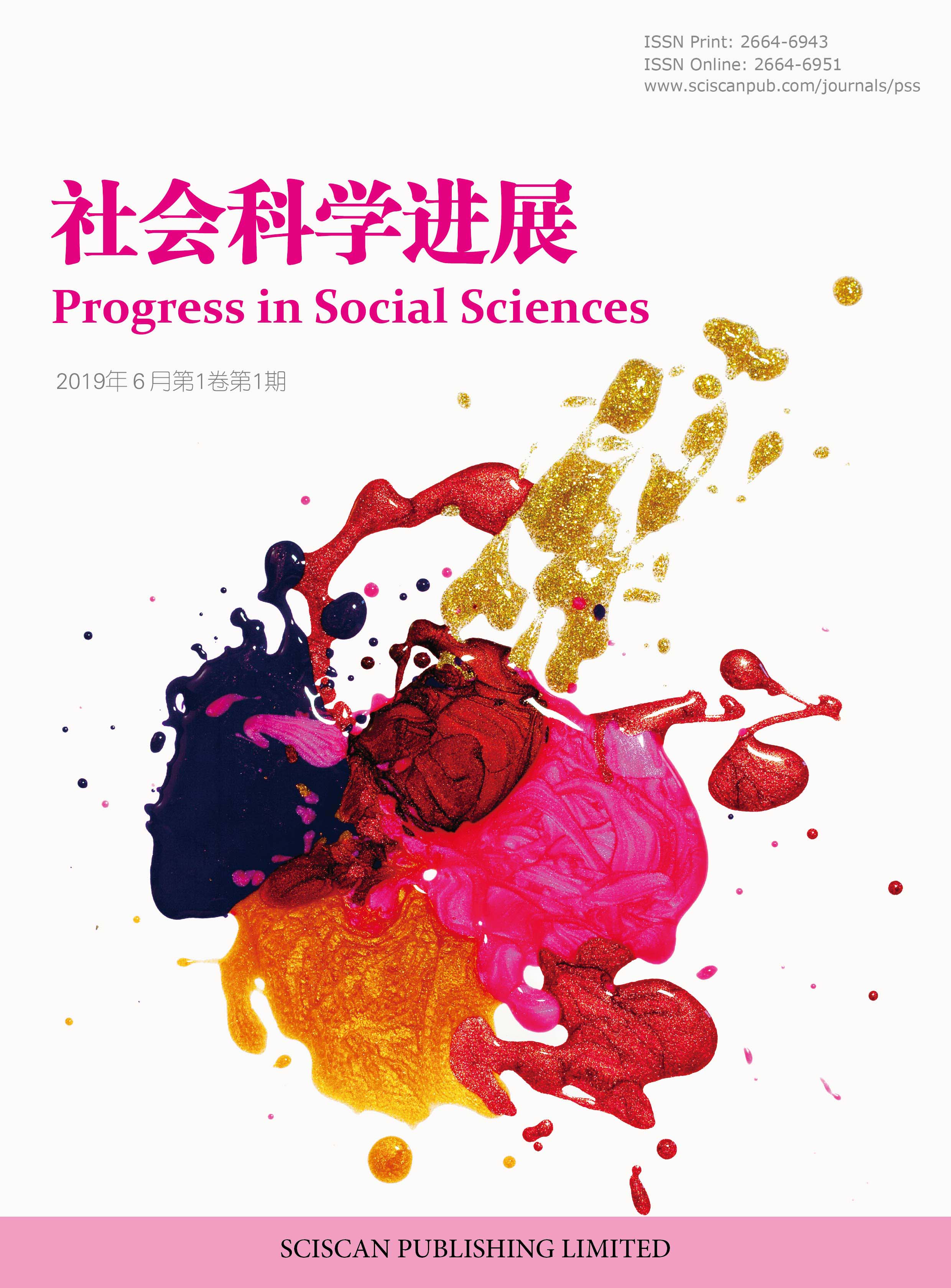Progress in Social Sciences
比较法视野下的民事诉讼证明妨碍制度研究
A Study on the System of Burden of Proof in Civil Litigation from a Comparative Law Perspective
- Authors: 郑其会
-
Information:
上海政法学院,上海
-
Keywords:
Civil litigation; Obstruction of evidence; Legal effects民事诉讼; 证明妨碍; 法律效果
- Abstract: In the current civil litigation system, the parties play a crucial rolein gathering and submitting evidence. However, in pursuit of maximizingtheir own interests, it is common to observe a phenomenon where theparties may engage in actions such as destruction, concealment, or refusal tosubmit evidence in order to impede the opposing party's proof activities. Theobstruction of proof in litigation constitutes a serious infringement on the rightto sue, hindering the progress and development of the litigation process, andreducing litigation efficiency. The urgent task at hand is to establish explicitlegal provisions to impose severe sanctions on acts of obstructing proof and toprovide judicial remedies for parties who have suffered from such obstruction,in order to uphold the fairness of the litigation process. In judicial practice inChina, prominent types of proof obstruction include cases related to intellectualproperty rights, family disputes, and infringement of trade secrets. These caseshave shown a growing trend of proof obstruction, with diverse methods ofobstruction being employed. However, the study of proof obstruction in China'sacademic community is still in a stage where the connection between theoryand practice is not sufficiently tight. The theoretical research on the proofobstruction system has always been the focus of investigation. It is important for us to shift our focus to bridging the gap between theory and practicefrom an international perspective, emphasizing the role of translating theoryinto practice, and drawing lessons from the experiences of other countries toeffectively apply the logical framework. We need to employ in-depth methodssuch as comparative research to conduct comprehensive studies on the proofobstruction system, and propose reasonable procedural safeguards andremedies. 当前的民事诉讼制度中,当事人在收集和提交证据方面发挥着至关重要的作用。然而,为了追求个人利益的最大化,常常出现一种现象,即当事人可能采取破坏、隐藏或拒绝提交证据等方式,以阻碍对方的证明活动。诉讼中的证明妨碍是对诉权的严重侵害,阻碍了诉讼进程的推进与发展,降低了诉讼效率。当务之急就是要通过法律明文规定,对证明妨碍的行为加以严厉制裁,对受到证明妨碍的当事人诉权进行司法救济,以维护诉讼公正。在我国司法实践中,较为突出的证明妨碍类型有知识产权、家事诉讼、侵犯商业秘密等案件类型,并呈现出证明妨碍不断攀升的趋势,展现出多样化的行为方式。然而,我国学术界对证明妨碍的制度研究,尚停在理论与实务衔接不够紧密的阶段。证明妨碍制度的理论研究一直以来就是研究的重心。我们更应聚焦于国际视野中理论与实务界的衔接上下功夫,关注将理论转化至实务的作用当中,参考别国经验,更好地将其中的逻辑真正运用起来。
- DOI: https://doi.org/10.35534/pss.0602021
- Cite: 郑其会.比较法视野下的民事诉讼证明妨碍制度研究[J].社会科学进展,2024,6(2):247-263.
1 民事诉讼证明妨碍的概念及要件
1.1 证明妨碍的概念界定
在学术界,证明妨碍的概念仁者见仁,学者们侧重点各有不同,因而尚未形成一致的共识。德国的普维庭教授认为证明妨碍是指当事人故意或过失地采取行动或不作为,从而危害对方的证明活动,并使负责证明的当事人失去利用证据进行证明的机会。这种行为可以发生在诉讼的各个阶段,且涵盖了所有的证据方法。证明妨碍制度的目的是保护诉讼公正和证明权的平衡,防止当事人通过妨碍对方的证明活动来获得不公平的利益,使得法院可以对妨碍证明的行为进行制裁,确保证据能够充分呈现并被合理评估。根据普维庭教授的研究,证明妨碍可以包括多种行为,如销毁证据、拒绝提供证据、故意误导对方或法院、妨碍证人作证等。他还提到,证明妨碍可以对诉讼过程的公正性和效率产生负面影响,因此需要明确的法律规定和制度来应对和制裁这种行为。[1]穆泽拉克教授的观点与前者相似认为,其认为该制度旨在防止当事人通过妨碍对方的证明活动来获取不当利益,同时保证诉讼双方都能充分行使其证明权利。根据他的观点,证明妨碍是指当事人故意或过失地采取行动或不采取行动,以妨碍对方在诉讼过程中的证明活动,从而影响案件的公正审理。他主张建立明确的法律规定,以明确禁止和惩罚证明妨碍行为。中国台湾的学者姜世明教授在关于证明妨碍制度的研究中主要借鉴参考了德国法院的观点。其认为德国的证明妨碍是指不负有证明责任的当事人以行动或不作为的方式对证明活动造成妨碍,导致本应查明的案件事实因其妨碍行为而无法查明。[2]在日本,证明妨碍被称为“立証妨害”或“証明妨害”。关于其概念,学界学者们存在不同的争议。高桥宏志教授认为,当一方当事人采取阻止证人出国或隐匿住址等行为时,旨在破坏证据的可获取性和真实性,并对负责证明的当事人产生影响和障碍,这种行为被视为证明妨碍。[3]松本义正教授认为证明妨碍指的是负有证明责任的当事人的对方以故意心态实施的妨碍行为,导致证明责任人无法充分展示证据来支持其主张。如果存在相反证据可以推翻负有证明责任的当事人的主张,那么法庭可能会根据这些相反证据进行推定,并倾向于认定相反证据所支持的主张为真实。
我国在证明妨碍制度方面的研究相对滞后,立法上也缺乏系统性和完整性。关于证明妨碍的概念,学术界没有达成一致。在司法实践中,有多种称谓用于描述证明妨碍,如“举证妨害”“举证妨碍”“证据妨害”“证据妨碍”“证明妨害”和“证明妨碍”。张卫平教授代表了“行为说”,他强调聚焦于证明妨碍的行为。而 陈界融教授的观点强调的是证明妨碍的后果的重要性,认为后果的认识才是把握证明妨碍概念的关键。张卫平教授认为,从广义上讲,妨碍人的范围即包括一般的“他人”,狭义范围上讲,仅限于负有证明责任的当事人。[4]“综合说”则是综合了上述两种观点综合。其代表学者毕玉谦教授在这一理论框架中强调行为和结果的重要性。具体而言,证明妨碍的行为是指导致无法提供证据来支持主张的行为,而结果则是无法提供证明所需的证据。[5]在证明妨碍中,行为是妨碍的行为,结果就是无法提供证据来证明的后果。
1.2 证明妨碍构成要件
我国理论界,对于证明妨碍构成要件的观点主要同大陆法系的观点。以毕玉谦教授为代表的“四要件说”,逐渐成为理论界的主要共识。
(1)主体要件
德国和日本法系采用的是民法体系,注重法典法规的解释和适用。在这两个国家,法律对证明妨碍的行为主体范围可能没有明确规定,而更多侧重于证明责任的分配原则。而美国法系采用的是常法体系,注重依据先例案例进行法律解释和判断。在美国,法官有较大的自由裁量权,可以根据案件具体情况决定是否将负证明责任的当事人纳入证明妨碍行为主体范围内,当然,也没有对证明妨碍作出系统的规定,而是灵活运用于实践。美国法律注重个人权利的保护和公平竞争的原则。将负证明责任的当事人纳入证明妨碍行为主体范围内是为了维护公平竞争和确保证明过程的正当性,以确保当事人在诉讼中享有平等的机会。相比之下,德国和日本的法律体系更注重当事人的责任和义务,将证明责任的分配视为解决争议的关键。虽然没有明确的法律条文规定负证明责任的当事人构成证明妨碍的主体,但在一些案件中,如果负证明责任的当事人故意妨碍了事实的查明,可能会被认定为证明妨碍行为。大多数学者认为,如果负证明责任的当事人实施了妨碍行为导致案件事实的真伪不明,可以通过应用传统的证明责任分配原则来追究其责任,而无需适用专门的证明妨碍制度。[6]
根据我国新《民事证据规定》第九十八条,当事人或其他诉讼参与人在诉讼中持有证据时,应当如实提供、协助调查和提供证明,不得隐瞒、篡改、销毁证据。持有证据的一方有义务配合法院和其他当事人的合法要求,提供证据并保持其真实性和完整性。这种“天然协力义务”所强调的是持有证据一方的积极合作和诚实守信原则。持有证据的一方应当主动配合调查和提供证明,确保证据的真实性和可信度,以促进诉讼的公正和顺利进行。但上述规定并未明确指出是否包含负有证明责任一方的当事人在“天然协力义务”的范围内。这也是目前对于证明妨碍行为的主体要件在我国法律中存在待进一步厘清的问题之一,通过法律法规以确立负有证明责任一方的当事人是否应当承担“天然协力义务”的问题。针对这一问题,台湾学者姜世明提出,诚实信用原则是法律中的一项基本原则,要求当事人在诉讼过程中表现出诚实和真实的态度。无论是当事人还是案外人,在证明过程中采取妨碍行为违反了诚实信用原则,破坏了公正和公平的诉讼环境都应承担相应后果。对于负有证明责任的当事人,在滥用诉讼权利或虚假诉讼情况下采取证明妨碍行为,可以视为违反其真实义务。对违反真实义务的当事人面临违约处理,包括赔偿损失、承担违约责任等,这是一种处理方式。另外法院在处理证明妨碍行为时也可以采取一系列程序制裁措施,如排除证据、对当事人处以罚款、延迟或终止案件等手段解决这类问题。这种观点具有合理性。美国判例法以主体要件为准则,对证明妨碍进行了分类,包括当事人证明妨碍和第三人证明妨碍。根据美国判例法的规定,要确定第三人的妨碍行为构成证明妨碍并使其承担法律责任,需要满足以下条件:第一,证明责任。原告或主张权益的一方必须有一个合理的证明责任,即有义务提供证据来支持其主张。第二,阻碍证明。第三人的行为必须有意地、有目的地阻碍或干扰原告在案件中提供证据。第三,知识或意图。第三人必须知道或应该知道其行为将会阻碍原告的证明过程,或者具有意图妨碍原告的证明过程。第四,重要性。第三人的行为必须对原告的证明过程造成实质性的影响,不能仅仅是轻微的干扰或无关紧要的行为,而必须对原告能否有效地证明其权益产生重大影响。
(2)主观要件
妨碍行为是指某人以故意或过失的方式干扰、阻碍他人行使其合法权利的行为。从比较法视野来看,如德国,故意行为被视为主观要件的核心,并被认为是证明妨碍行为的关键因素。行为人必须有意地干扰他人的合法权益,才能被认定为妨碍行为。在这种情况下,过失心态通常不被视为足够构成妨碍行为的主观要件。以德国、日本为代表的大陆法系国家,以及我国台湾地区的立法中,对于过失主观心态下造成的证明妨碍是否应予认定并未明确。但大陆法系学者在研究中普遍主张在民事诉讼中应承认过失证明妨碍的存在。[7]在民事诉讼法中,过失证明妨碍行为类型主要有以下三种:第一,未能采取合理措施导致证据丧失;第二,过失破坏证据的行为。妨碍行为人在处理证据时犯下的过失行为,导致证据被破坏、篡改或无法被使用。第三,未能履行保存证据的义务。妨碍行为人在应当采取适当措施保存证据的情况下,由于疏忽或疏忽大意而未能履行这一义务,导致证据丧失或无法利用。法律规范制度中尚未明确的原因,主要是因为过失证明妨碍的判断涉及对妨碍行为人的主观心态进行评估,评估主观心态往往是困难且模糊的。另外,过失证明妨碍通常涉及证据的丧失、毁损或无法利用,因此,需要证明行为人未能履行证据保存或提出的协力义务。
我国现行新《民事证据规定》和《民诉法解释》中所规定的主观责任形态主要表述为“无正当理由拒不提交”的书证提出义务等规定中。“无正当理由”的主观要件如前文所述,很难直接准确感知,还需要结合现实情况和外部结论。我国法律条文中的这一表述至今仍缺乏明确的具体解释。主观要件的构建是一项需要运用立法技术的复杂任务。
(3)客体要件
证明妨碍的客体要件是指构成证明妨碍行为所针对的具体对象或元素,涉及阻碍或干扰证据的获取、保全、提交或使用过程中所涉及的实体或信息。在我国台湾地区修订前的《民事诉讼法》第三百六十二条仅规定了文书的证明妨碍,未涵盖其他类型的证据。在实际的诉讼过程中,随着证据形式的多样化,其他类型的证据也面临着被阻碍、毁损或隐藏的情况,导致了在处理这些情况时存在法律空白和困扰。我国新《民事证据规定》第九十五条中,将“持有”修改为“控制”,从字面意思上扩大了证据适用范围。从实际持有证据的角度来看,“控制”一词包括了传统意义上的持有,即行为人直接拥有、保管或掌握证据的情况,即物质性的持有;同时,也包括虚拟性的持有,例如拥有电子邮件、社交媒体记录等数字证据。这样的修改使得规定能够更全面地适应现代技术发展,包括数字化和网络化环境中的证据。其次,还包括了通过影响力、支配权或其他手段对证据进行掌控的情况。即使行为人并非实际持有证据,但由于其地位、权力或其他因素,可以对证据进行操纵或掌握。
(4)结果要件
证明妨碍制度的目的是解决在诉讼过程中证据受到阻碍、毁损或隐藏的问题。如果对每个轻微的证据妨碍行为都启动证明妨碍制度,可能会导致过度扩大其适用范围,对当事人产生不必要的法律后果。因此,结果要件的引入提供了一种限制和衡量的机制。然而,目前中国法律制度中的证明妨碍制度确实缺乏明确的结果要件。在我国《民事诉讼法》及相关司法解释中,并未对证明妨碍的结果要件做出具体规定。在实践中,法院在决定是否适用证明妨碍制度时,通常需要根据具体案件的情况进行判断。一般情况下,法院会考虑事实认定的困难程度、当事人是否有合理解释的机会以及其他相关因素来确定是否存在证明妨碍。缺乏明确的结果要件可能导致在适用证明妨碍制度时存在一定的主观性和不确定性。
2 证明妨碍的法律效果探索
2.1 英美法系证明妨碍法律效果设置
美国对于证明妨碍的法律效果主要可归类为以下三个主要方面:程序性法律规制、独立侵权之诉,以及违反律师职业道德的法律规制。
(1)程序性法律规制
程序性法律规制是指在诉讼程序中对证明妨碍行为进行规制的法律机制。美国法律体系中,对于证明妨碍行为,法院可以采取一系列制裁措施,以确保司法程序的公正性和证据的真实性。具体措施包括以下几种:第一,推定不利后果。当一方未能提交证据或提供充分解释理由时,法院可以根据常识和逻辑推理,合理地推定这些证据可能对该方不利,并在事实认定中予以考虑。推定不利后果对证明妨碍方产生负面影响。如果一方故意或无故妨碍对方获取、保留或呈现证据,法院可以采取证据排除或限制的措施。被妨碍方可以向法院申请排除或限制妨碍方所涉及的证据,以避免其对案件的不当影响。第二,证据排除。法院排除妨碍方提供的证据,使其无法在诉讼中使用。如果一方故意销毁关键文件作为证据,法院可以排除这些文件,以保护证据的完整性和诚信性。第三,证据限制。法院限制对妨碍方涉及的证据的使用范围。法院可以限制妨碍方使用特定证据的方式或目的。如果一方以欺骗手段取得的证据被视为妨碍行为,法院可以限制该方只能在特定条件下使用该证据。法院还可以对证明妨碍方进行费用和制裁的处罚,通过要求证明妨碍方支付对方的诉讼费用、律师费用,以弥补对方因妨碍行为而产生的损失,[8]以惩罚其不当行为并起到警示作用。
(2)独立侵权之诉
在美国,证明妨碍行为还可以作为独立的侵权之诉的依据。受到证明妨碍行为侵害的一方可以单独起诉证明妨碍方,并寻求相应的赔偿。这种侵权之诉的目的是保护当事人的合法权益,使其能够获得因证明妨碍行为而遭受的实际损害的补偿。
(3)违反律师职业道德的法律规制
律师的职业道德要求他们忠实、诚信地代表客户的利益,并遵守道德和职业规范。律师在代理客户时有责任保护证据的完整性和可靠性,以确保诉讼过程的公正性。如果律师故意或无故妨碍他方获取、保留或呈现证据,例如虚假陈述、销毁或篡改证据,或阻止证人作证,即会受到法律规制和纪律处分。
2.2 大陆法系证明妨碍法律效果设置
在大陆法系国家,关于证明妨碍的法律效果是否应适用证明责任倒置,引发了广泛的争议。一种对立的观点认为,法官不应僵化地适用证明责任倒置,而应在自由心证的范围内进行自由评估。这一争议通常被称为“证明责任倒置说”与“法官自由裁量说”的辩论。
(1)证明责任转换
证明责任转换的基本原则是根据可信的初步证据,推定某个事实为真,并将对此事实的证明责任转移给对方当事人。在证明责任转换的情况下,当事人需要提供足够的初步证据以建立事实的合理推定。这些初步证据应当与事实相关,并且足以使法院合理地相信某个事实存在。一旦提供了这样的初步证据,法院将转移对方当事人的证明责任。这种转换有助于司法效率和公正,因为在某些情况下,确实存在着获取证据的难度或不公平的情况。在某些司法实践中,例如德国和日本,存在一种法律效果,即在发生证明妨碍行为时,被告原本应负责证明的事实责任转嫁给了原告一方。这一效果被视为最早且较为简单的处理方式。虽然在形式上,证明责任的转嫁使得双方暂时恢复了平等地位,但却没有对妨碍人的主观心理状态进行具体分析。这可能导致被妨碍一方过度补偿,从而使双方在实质上出现不平等的情况。此外,证明责任的随意转嫁也增加了诉讼过程的不确定性。证明责任转换并不意味着当事人不需要提供证据支持自己的主张。转换只是暂时将证明责任从一方转移到另一方,要求后者提供反驳证据。如果对方当事人未能提供足够的反驳证据,法院可能会根据推定事实作出相应的判决或裁决。
(2)降低证明标准
降低证明标准是指在一些特定情况下,法院可以降低对当事人提供的证据的要求标准。当事人可以通过较少或较弱的证据来满足法院的要求,其目的是为了应对证据获取困难或其他特殊情况下的实际困难,以确保当事人能够在合理的范围内提供证据并维护其权益。在大陆法系国家,法官的裁决通常基于证据的可信度和法律的适用。当事人在诉讼过程中负有证明责任,即需要提供足够的证据来支持自己的主张。当存在证据不足或难以获得的情况,导致当事人无法满足一定的证明标准的情况时,法官可能会依据自己的内心确信来做出裁决。法官会根据自己的主观判断和经验,对案件的事实和证据进行综合考量,并根据其内心的确信程度来做出决定。[9]这种做法通常发生在证据不足或存在争议的案件中,法官可能会在法律允许的范围内根据自己的判断做出决策。[10]降低证明标准的操作难度很大,因为它需要根据被妨碍证据的重要程度来制定不同的标准。在实际操作中,某些证据可能对案件的结果具有重大影响,而其他证据可能相对较次要。因此,法官需要在权衡证据的重要性和可信度的同时,决定是否降低证明标准。这种判断过程对法官来说是具有挑战性的。他们需要准确评估证据的可靠性,同时考虑案件的公正性和合理性。[11]
(3)法官自由心证
大陆法系中的证明妨碍制度下,法官自由心证制度是一种特殊的裁判方式,它允许法官在某些情况下根据自己的内心确信来做出对当事人责任的裁决,即法官可以在当事人未达到一定的证明标准之前,依据自己的主观判断来做出决策。这一制度在实践中存在一些争议和挑战,但也具有一定的合理性和灵活性。大陆法系中的证明妨碍制度旨在处理证据不足或难以获得的情况,以保障当事人的权益。在某些案件中,当事人可能面临证明困难,无法满足严格的证明标准。在这种情况下,法官的自由心证制度可以为当事人提供一种公正和合理的解决途径,使法律实施更加灵活。德国、日本和中国台湾都是自由心证理论的支持者。
3 证明妨碍制度程序保障与救济机制的比较研究
3.1 特别审查程序
在处理涉及秘密证据,特别是书面证据时,有可能因为相对方提交的文件泄露秘密信息。德国采取的做法是将文书核查的职责限定给中立的第三方,以保护当事人或第三方的个人隐私或商业秘密。德国刑事诉讼法第二百四十七条规定的让一方当事人离开法庭的制度并不违反根据德国《基本法》第一百零三条第一款的任何人在民事或刑事诉讼中都有权要求在公开法庭审理中进行听证的听审请求权。该制度的目的是保护个人隐私或商业秘密,并在特定情况下减轻对当事人或证人的压力。通过让一方当事人离开法庭,可以提供一种保护隐私和商业利益的环境,同时确保其他当事人或证人的权利得到保障。
日本的《民事诉讼法》第二百二十三条第三款专门设立了“In camera”程序,也称为特别审查程序(特例的審査手続き),用于解决证人的拒证权与文书提出义务之间的冲突。该条款规定:当一个人拒绝作为证人提供证言,并且基于其权益或其他正当理由,认为提供证言可能会对其自身或其近亲属产生不利影响时,该人可以向法院提出请求,要求对其提供证言的义务进行审查。在特别审查程序中,法院将审查证人的请求,并根据具体情况决定是否允许证人拒绝提供证言。法院将权衡证人的权益和案件的公正审理之间的平衡,以确保维护当事人的权益和法律程序的公正性。与德国采用中立第三方进行鉴定不同,在日本的司法制度中,法官承担着核查和评估涉及秘密信息的责任。当涉及敏感信息的案件时,法官会对提交的证据进行秘密审查,以保护当事人或其他相关方的隐私权和商业利益。这种做法确保了法院对秘密信息的审查和控制,并确保信息的保密性,能降低另外启用第三方带来的外来风险因素。尽管法律没有明确规定协助义务,但文书的内容和表达方式可能隐含着持有人的意图和意愿,因此法官在审理案件时需要注意到这种情况,并根据相关证据和周围的事实环境进行合理推断和解释。
3.2 中间判决以确认证据协力义务
在德国,法官在审查通过并作出文书提出命令后,如果一方有反驳意见,可以通过《民事诉讼法》第三百三十三条规定的中间判决程序来确认其拒绝命令是否合理。[12]证据协助义务是指当事人根据法律规定或法院的要求,有义务提供特定的证据以支持案件的审理。这可能涉及提交书面文件、提供证人证言、提供物证等。证据协助义务的存在与否可能在案件中成为争议的焦点。在确认证据协助义务的问题上,法院可以通过中间判决来作出裁决。中间判决可以确定当事人是否有证据协助义务,以及应该履行什么样的协助义务。法院会根据法律的规定和案件的具体情况,综合考虑各方的主张和论据,做出关于证据协助义务的中间判决。德国法律在处理证明妨碍问题时通常采用单独审理的方式,而不是通过中间判决来解决。在证明妨碍的情况下,法院会单独审理当事人是否有提供文书证据的义务,并对后续的证明妨碍行为进行认定。中间判决可以为双方提供辩论的机会,并在特定问题上做出裁决,有助于确保案件的透明度和程序的公正性。通过中间判决,法院可以就证据协助义务的存在与否、证明妨碍行为的认定等问题进行明确的裁决,并为后续的审理提供指导。[13]
3.3 最后辩论权保障与即时抗告程序
大陆法系的证明妨碍制度中,最后辩论权和即时抗告制度是两个重要的救济规则。台湾的《民事诉讼法》第二百八十二条规定了证明妨碍推定的情形,如果一方当事人在法庭上拒绝回答与案件有关的问题、提供与案件有关的文件或者其他证据,或者故意隐匿、销毁、伪造证据,法院可以推定该方当事人存在证明妨碍行为。当事人在庭审结束前有权进行最后陈述和辩论的权利,确保当事人能够在庭审结束前最后一次表达自己的观点和辩护意见,以应对对方的主张和证据。在德、日的法律中,虽然没有明确规定最后辩论权和即时抗告制度作为证明妨碍制度的救济规则,但根据通常的法理和实践,这些环节也可以在实践中发挥重要作用。台湾地区对于证明妨碍的真实裁量权要比德国和日本更大,进一步强调法官的程序指挥权。法官可以采取必要的措施,例如要求当事人提供特定的证据、要求解释或补充证据、对证人进行诘问等,以促进案件的审理和证明的顺利进行。沈冠伶认为,职权探知主义强调法院在证明问题上的积极作用,法院应该主动探寻真相,而不仅仅依赖当事人提供的证据。即使适用了有关拟制真实的规定,仍然属于自由心证的范畴,法院需要审慎考虑各方当事人的辩论意见,并适用适当的经验法则,以确保案件审理的公正性和权威性。
其次,即时抗告程序。即时抗告程序的具体规定和适用范围因司法体系和国家而异。在某些司法体系中,只有特定类型的中间判决或程序性决定才能成为即时抗告的对象,而其他决定可能需要在更高级别的上诉程序中争议。通过即时抗告程序,当事人可以寻求对中间判决或程序性决定进行复审,以便更早地纠正错误或争议,并确保程序的公正性和权威性。这种程序的设置可以保护当事人的合法权益,同时减少诉讼的时间和成本。德、日妨碍制度的即时抗告程序不同之处在于,德国的制度主要关注中间判决中涉及的拒绝勘验问题。德国法对于拒绝勘验义务是否合理的中间判决,当事人可以提起即时抗告。如果中间判决确认拒绝是不正当的,法院可以处以罚款。如果无法执行罚款,当事人可能会被处以六周以下的拘留。而在日本,针对违反文书提出义务的第三人,允许对处分提出即时抗告。日本的制度重点关注第三人在提供证据时的义务,并允许对处分提起抗告。
4 我国证明妨碍制度的完善建议
4.1 完善立法规定
(1)增设原则性或一般性法律规定
我国在《民事证据规定》中只设置了一条相关规定,存在法律位阶较低的问题。《民事证据规定》中的规定相对具体,仅明确了当一方当事人控制证据且无正当理由拒不提交时可以构成证明妨碍。这种规定的适用面较为狭窄,未能详细列举或具体说明各种可能的证明妨碍行为,如虚假证言、证据销毁、证据篡改等。因此,在复杂多样的实际情况中,法律的适用可能存在一定的困难,法官可能无法明确处理各种不同类型的证明妨碍行为。因此,我认为有必要在我国《民事诉讼法》中设立原则性或一般性规定,涉及广义证明妨碍行为及其法律效果。广义证明妨碍行为的法律效果应根据主观归责程度的不同进行分类区分。例如,对于故意销毁证据、伪造证据等严重的证明妨碍行为,可以采取更严厉的法律措施,如推定事实主张成立、逆推责任等。而对于因过失导致证据丢失、误解证人证言等较轻微的证明妨碍行为,可以采取较为温和的法律后果,如责任倒置、证据不利推定等。在《民事诉讼法》中设立原则性或一般性规定,明确广义证明妨碍行为的概念、界定和法律后果,可以为法院提供明确的法律依据,使法官能够更好地处理各类证明妨碍行为案件。
(2)明确免责事由
《民事证据规定》第九十五条规定,当一方当事人控制证据且无正当理由拒不提交时,可以构成证明妨碍。在该规定中,正当理由并未具体说明,但免责事由的明确性对于司法实践的公正和确定性至关重要,应当为免责事由中的正当理由提供更明确的界定和准则,以确保司法实践的公正性和确定性。我认为证明妨碍的免责事由应包括四类情形:第一,法定免责。在某些情况下,法律可以明确规定一些免责事由,即使当事人控制证据且无正当理由拒不提交,也不会构成证明妨碍。第二,合理阻碍。当事人可能因为合理的阻碍无法提交控制证据,这种情况下也可以设定免责事由。例如,如果证据因不可抗力事件而无法保存或被毁可以视为合理阻碍。第三,保密义务。当事人可能因为遵守保密义务而无法提交控制证据,这也可以作为免责事由。第四,法律特例。根据特定的法律规定,可以设定针对特定领域或行业的免责事由。如果以上所述的情况属实,法律应该允许行为人免责。通过明确免责事由的范围,可以确保法律的适用统一和明确性。
4.2 完善程序保障与救济机制
辩论是民事诉讼中的重要原则,它确保了当事人在案件处理过程中的听证权、申辩权和辩论权。适用证明妨碍法律效果会对行为人的诉讼利益及其他重大利益产生不利后果,因此,行为人有权在这一阶段进行充分的辩论,以保障其合法权益的充分发表和被考虑。在确保证明妨碍法律效果适用的准确性和妥当性方面,应给予行为人充分的辩论机会。行为人的辩论机会应在适用法律效果之前提供。[14]例如,当事人A和当事人B之间存在一起借款纠纷。当事人A声称当事人B借款未归还,并要求法院判决当事人B支付拖欠的借款金额。当事人A提供了一份书面借款合同作为证据,合同明确规定了借款的金额、还款方式和截止日期。当事人B则否认签署该合同,并表示无法提供该合同的副本。在这种情况下,根据《民事诉讼法》的规定,当事人A可以要求当事人B提出其保管的书证,即借款合同。如果当事人B无正当理由不提出或隐匿、毁损、篡改书证,法院可以根据证明妨碍的法律效果推定该书证对当事人B不利。因此,当事人A可以要求法院根据证明妨碍的法律效果,推定当事人B不提出借款合同的正当理由,并对其支付拖欠的借款金额负有责任。法院在判断证明妨碍时,应给予当事人B充分的辩论机会。当事人B可以提供正当理由,例如他并未签署该借款合同,或者合同不由他保管,并提供相关证据来支持其主张。法院应审慎评估当事人B的陈述和提供的证据,如果当事人B能够提供充分的正当理由,法院就不能认定其行为构成证明妨碍。
4.3 完善法律效果适用的裁判规则
目前,我国《民事诉讼法》没有对释明制度做出明确而具体的规定,只是通过司法解释进行了一些零散的规定。在实践中,一些地方的高级人民法院发布了一些包括释明的程序、适用条件、法官的权力和职责等内容的规范性文件或指导意见,对于释明制度给出了一定的参考依据。为了在适用证明妨碍法律效果之前阶段解决问题,我提倡引入法官释明制度。引入法官释明制度可以为证明妨碍问题提供明确而具体的解释,为法官提供一致的指导和标准,确保在处理证明妨碍问题时的一致性和公正性。通过明确界定证明妨碍的要件和标准,可以减少司法裁量的主观性,提高司法公正性。[15]一旦适用证明妨碍行为的法律效果,将不利于行为人的诉讼权益和其他重要权益。引入法官释明制度可以确保在不同案件中对证明妨碍行为的判断具有一致性和公正性。法官可以依据法律和司法解释,根据案件的具体情况进行释明,为行为人提供明确的法律依据,减少对证明妨碍问题的争议和误解。
参考文献
[1][德]汉斯约阿希姆·穆泽拉克.德国民事诉讼法基础教程[M].周翠,译.北京:中国政法大学出版社,2005:273.
[2]姜世明.新民事证据法论[M].厦门:厦门大学出版社,2017:281.
[3][日]高桥宏志.民事诉讼法——制度与理论的深层反析[M].林剑锋,译.北京:法律出版社,2004:456.
[4]张卫平.证明妨害及对策探讨[J].证据学论坛,2004(1):157.
[5]毕玉谦.民事诉讼证明妨碍研究[M].北京:北京大学出版社,2010:1-3.
[6]马龙.论德国民事诉讼中的证明妨碍制度——以德国联邦法院的判例为考察对象[J].证据科学,2015(6):707.
[7]周庆,李蔚.我国民事诉讼证明妨碍研究[J].证据科学,2018,26(1).
[8]白绿铉,卞建林.美国联邦民事诉讼规则证据规则[M].北京:中国法制出版社,2000:75.
[9]占善刚.证明妨害论:以德国法为中心的考察[J].中国法学,2010(3):108.
[10]汤维建,许尚豪.建立举证妨碍制度,完善证据立法[M].北京:中国检察出版社,2004:113.
[11]汤维建,许尚豪.建立举证妨碍制度,完善证据立法[M].北京:中国检察出版社,2004:113.
[12]周翠.举证妨碍规范的解释与完善[J].当代法学,2022,36(1):136-148.
[13]马龙.论德国民事诉讼中的证明妨碍制度——以德国联邦法院的判例为考察对象[J].证据科学,2015,23(6):707-720.
[14]赵信会.论证明妨碍救济措施之创设——以对英美法律制度的分析为参照[J].证据科学,2014,22(3).
[15]潘剑锋,牛正浩.书证提出命令的理论革新与路径优化——以商业秘密侵权诉讼为切入点[J].北方法学,2021,15(6):5-18.
















